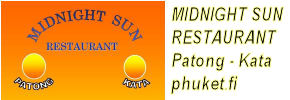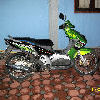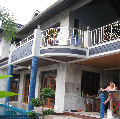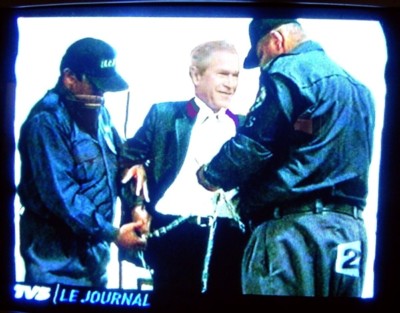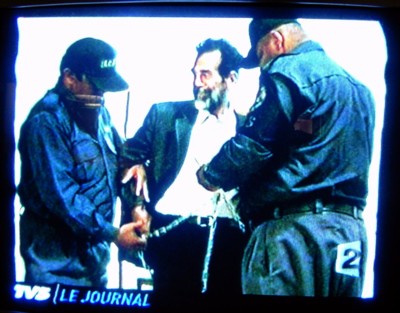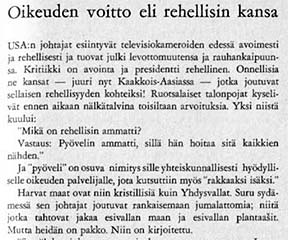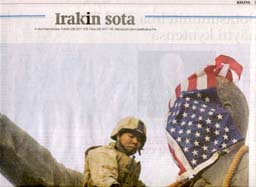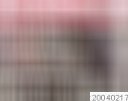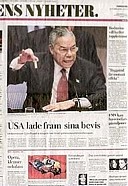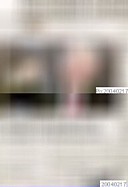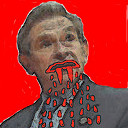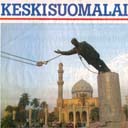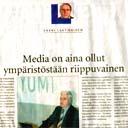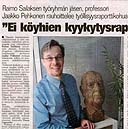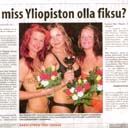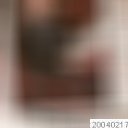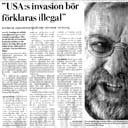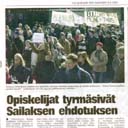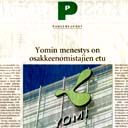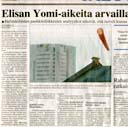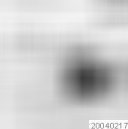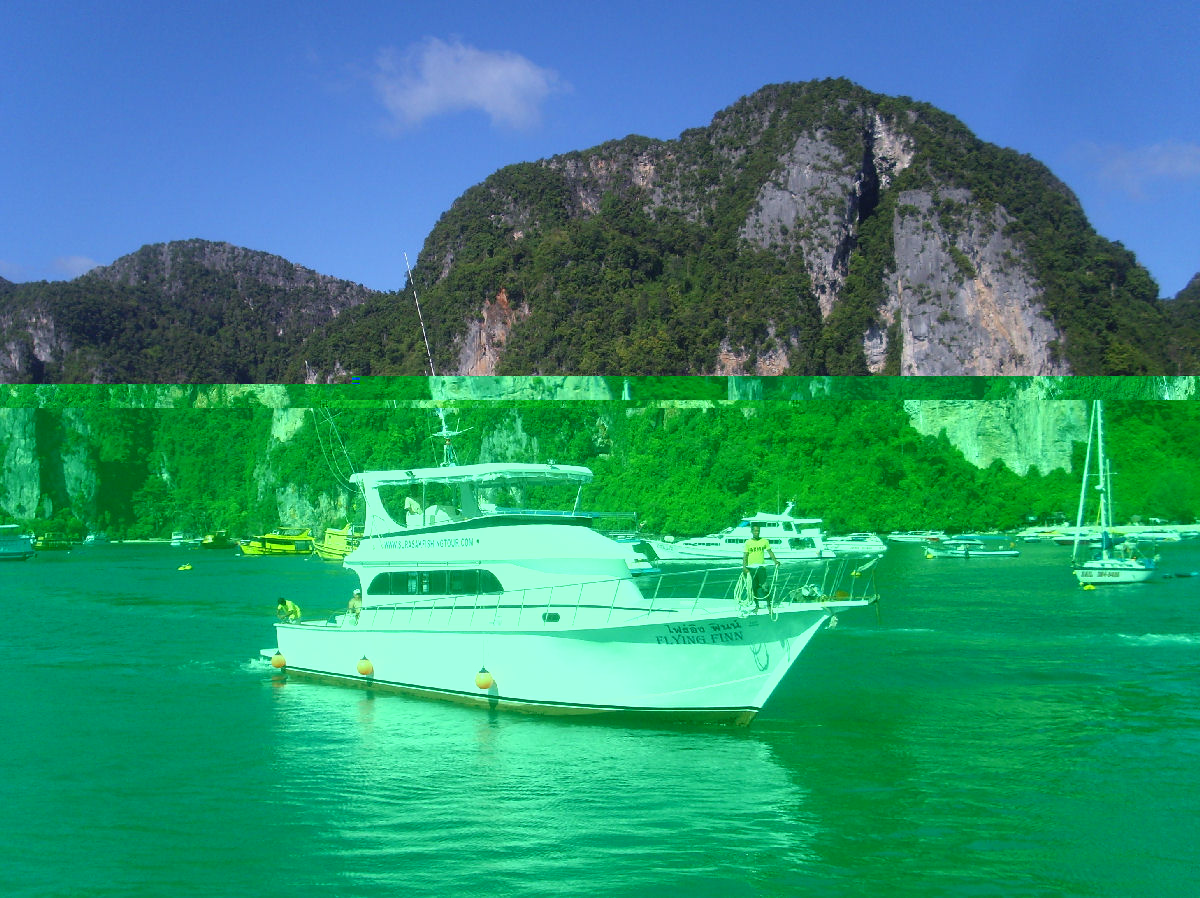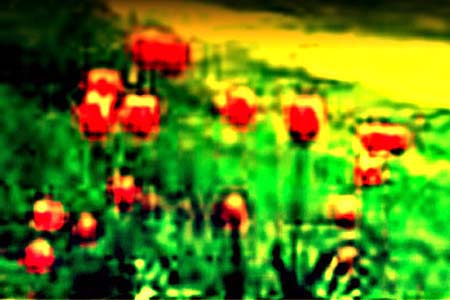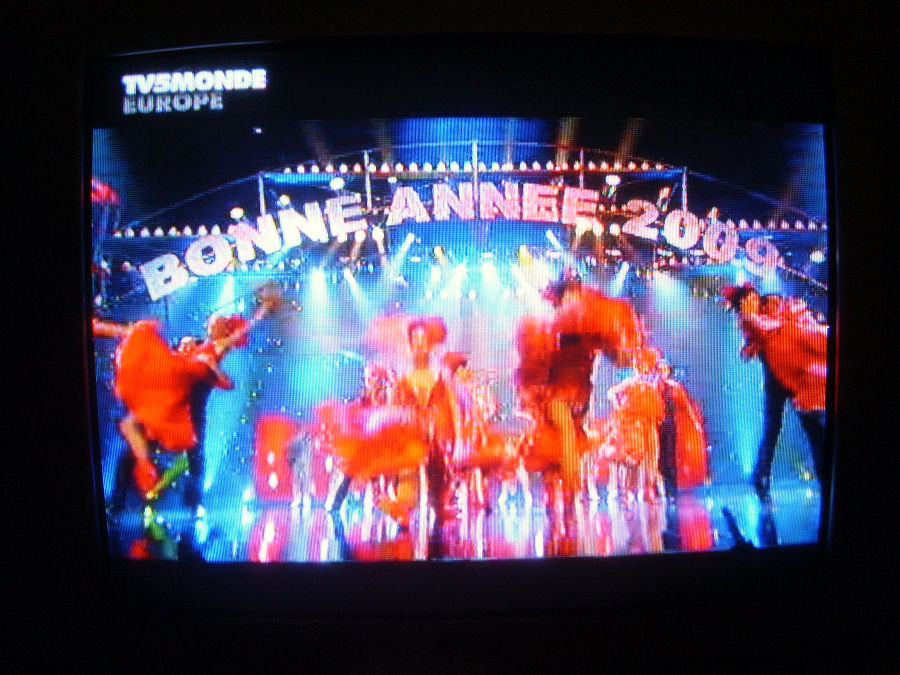| Uusin
-
Linkit
joka etusivulle - Haku
- 10
v! - Ilmoitukset
- Viikkosanomat-blogi -
Arkistosta
jotakin väkivallasta ja muustakin 1999-2003.
Lue! |
| Sanomanetti N:o 1101 |
Perjantai 2010-01-29 |
Ilmoita ilmaiseksi sivu! |
| Varastettua
kuvaa etsimässä: Matti Vanhanen ja Meri-Kukka Forsius intiimisti.
Viikkosanomat: Cul-de-sac Tony Blair gives evidence to Iraq war inquiry Guardian - Irak: Pääkirjoitus, kuvia ja linkkejä. Lue&katso! |
Arkisto
2004.
"Milloin alkavat kansainväliset oikeudenkäynnit lännen sotarikollisia
vastaan?".
Salmén 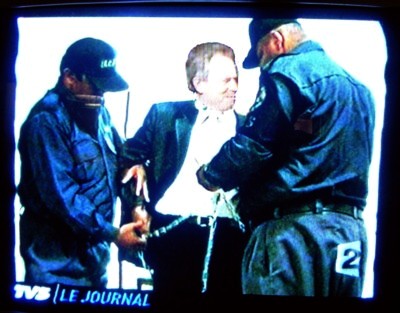 Leif Salmén: "Milloin alkavat kansainväliset oikeudenkäynnit lännen sotarikollisia vastaan?
|
| Comment
is free Blair's crime of hubris Blair's boast about WMD points to a fertile new field of inquiry that Chilcot must not duck Jonathan Steele guardian.co.uk, Sunday 13 December 2009 23.00 GMT Tony Blair's boast that he would have sought to remove Saddam Hussein even if he knew Iraq's president no longer had weapons of mass destruction brings fresh evidence that he probably committed a crime in going along with George Bush's invasion. It also puts the spotlight on Gordon Brown, David Miliband and the rest of the Labour cabinet of the time. Perhaps that was the purpose behind the former prime minister's extraordinary claim in his BBC interview with Fern Britton yesterday. Perhaps he wants to bring his colleagues down with him, for the nub of Blair's new case is that he could have persuaded the cabinet to go to war even if there were no Iraqi WMD. "You would have had to use and deploy different arguments about the nature of the threat", as he put it with his customary arrogance. Could he have succeeded? Would the cabinet really have been so weak that they dared not resist? The challenge to the Chilcot inquiry is to invite Blair's senior ministers to come before it and answer the same question: would you have gone along with an invasion, even if you knew Iraq was disarmed? It is hard to see how there could have been any legal basis for an invasion if Saddam had been shown to have disarmed. UN security council resolution 678, dating back to 1990, on which the attorney general flimsily relied for his eve-of-war advice to Blair that the war was legal, justifies force only in the case that Saddam was not complying with demands that he disarm. Once it became clear Iraq no longer had WMD, resolution 678 falls away. Apart from WMD there was no other conceivable foundation for an invasion. Using force to produce regime change on humanitarian grounds is not permissible under international law, and the attorney general told Blair as much in July 2002. Nor is there any way that the security council would have authorised it later on that year or in 2003. Yet Blair in effect admits
he and Bush planned to launch a war even if they knew there was no chance
of getting UN approval. In cases brought before the International Criminal
Tribunal for Yugoslavia, political leaders who plotted large-scale illegal
violence were described as collaborating in a "joint criminal enterprise".
Here too is a fertile new field of inquiry that Chilcot must not duck.
... |
| Arkistosta. Sanomapark tiistai 2006-12-08.
|
| Arkistosta. Sanomapark torstai 2003-04-10.
|
| Arkistosta. Sanomapark torstai 2003-04-10.
|
| Arkistosta. Sanomapark torstai 2003-04-10.
|
||||||||||||||||||||
 2008-11-21 perjantai (905)
|
Lue myös! 13.02.2003.
|
Lue
myös! 18.12.2003.
|
Lue
myös! 19.03.2005.
|
Lue
myös! 09.04.2005.
|
|
 2008-11-21 perjantai (905) |
| Presidentti George Bush-nukke poltetaan miehityksen jatkamista vastustavassa mielenosoituksessa samalla jalustalla, josta presidentti Saddam Hussein-patsas revittiin alas USA:n joukkojen hyökättyä Bagdadiin viisi ja puoli vuotta sitten. Perjantai 2008-11-21. |
| "Om
styrkorna inte ger sig av så står jag och de mina på
er sida när ni kör ut dem på det sätt som
ni
finner lämpligt så länge det inte strider mot Allahs
lag. Prisad vare Hans namn!"
Muqtadr al-Sadr. Presidentti George Bush-nukke poltetaan miehityksen jatkamista vastustavassa mielenosoituksessa samalla jalustalla, josta presidentti Saddam Hussein-patsas revittiin alas USA:n joukkojen hyökättyä Bagdadiin viisi ja puoli vuotta sitten. Kuvat Pertti Manninen svt1:n lähetyksestä perjantaina 2008-11-21 klo 19:06-19:07. |
|
| http://www.guardian.co.uk/
29 January 2010
News Politics Politics blog A war crimes trial? No. Sir John Chilcot has made it clear that no one is on trial at the Iraq inquiry and there is no evidence, from the questions they've been asking, to suggest that Chilcot and his team believe that Blair did anything corrupt. Blair will get asked about claims that he exaggerated the intelligence case, but the inquiry panel – unlike Blair's critics – seem to take the view that exaggerating isn't the same as lying. A truth and reconciliation commission hearing? No. Blair has given countless speeches and interviews about Iraq over the last seven years and there is no evidence to suggest that he has been harbouring some extraordinary secret relating to what happened that he is suddenly going to share with the world today. A contemporary history seminar? We will get that, but Blair must know that the public expects much more than a dusty account of who said what when. The Iraq war is now hugely unpopular and it has tainted Blair's legacy. Today he will have to defend it. So what will we get? I'm not really sure. But Blair was probably the best advocate/communicator of his political generation and today could turn out to be his last really big performance on the British political stage. It should be an extraordinary day. 8.29am: I thought I was in early, but Blair got to the QE2 centre at 7.30am today. There are "scores" of protesters outside the conference centre, but they are outnumbered by police. Here's what the Press Association is saying. There was a stand-off
between police and leaders of the Stop the War Coalition, who accused
the Metropolitan Police of breaking agreements on where protesters would
be allowed to stand. 8.31am: If you haven't already, do read Patrick Wintour's account of what Blair is likely to say today. It's all good stuff, but I particularly liked his explanation of why the secret letters Blair wrote to George Bush won't be published. Patrick quotes an ally of Blair's who said: I do not believe any of them show he is saying he will commit British troops unconditionally. He is supportive, but Bush is quite a simple man who won't read beyond the first paragraph if you don't say you are with him. I don't think they can be published. They go the heart of the UK-US relations. They are full of scurrilous remarks about other people, including [Jacques] Chirac. 8.36am: It is taken as fact that the Iraq war is now viewed by most members of the public as a mistake, but it's hard to find good polling evidence that backs this up. The most recent poll I'm aware of that asked about Iraq was one conducted by YouGov earlier this month. Annoying, YouGov did not ask a simple question about whether the war was right or wrong. But they did find that 52% of respondents said that Blair "deliberately said out to mislead the public" and that 23% said Blair "knowingly misled parliament and the public and should be tried as a war criminal", which does give a reasonably good insight into public opinion. The YouGov website has also got a chart showing how the public response to the "was the war right or wrong" question changed from 2003 from 2007. On March 18 2003 (the day of the Commons vote) 50% of people supported the war, and 42% were opposed. By April 10 2003 support for the war hit 66%, with 29% opposed. But by April 2007 only 26% supported the war, and 60% were opposed. 8.51am: Blair is now being criticised for arriving at the QE2 centre through a side door. This is what Lindsey German, convener of the Stop The War Coalition, is saying: He doesn't have the decency or honesty to face up to the public, military families, and Iraqis who will be here today in huge numbers to show their opposition to the war. He does not have the integrity to come and face the people. Sliding in by a back door entrance is typical of his lies, deceit and evasion. 8.58am: Denis MacShane, the former minister, has just been on News 24 defending Blair. He deserves a mention because he has written the best of the pro-Blair Iraq articles to appear in the national press over the last week or so. Admittedly, he has not had much competition, but if you want to read the Blair case, MacShane's article in the Independent is worth a read. Here's a flavour of it. Which of the many senior politicians caught in the long-running debate over the Iraq conflict said that Saddam Hussein "most certainly has chemical and biological weapons and is working towards a nuclear capacity" and that the now famous dossier "contains confirmation of information that we either knew or most certainly should have been willing to assume?" Not Jack Straw nor Geoff Hoon, whose evidence to Sir John Chilcot is central to the inquiry. Not an Alastair Campbell parrot but the Right Honourable Sir Menzies Campbell MP QC, speaking in the debate in the Commons in September 2002 when the now infamous dossier was published. The point is made not to mock Ming Campbell, whose views changed as events unfolded, but as a reminder that the Chilcot Inquiry is taking an increasingly surreal turn as it discusses not the history of what happened but the contemporary passions of protagonists nearly a decade later. 9.06am: Several papers have published their version of the "10 questions Blair must answer" piece. Our contribution to the genre is here. But, if 10 isn't enough for you, do read this, from the Plaid Cymru MP Adam Price. He has produced 63 questions for Blair to answer. I do like the fact that he settled on 63. You can be confident that he hasn't just made some up to reach a nice round number. 9.11am: News 24 are saying there are about 200 protesters outside the QE2 centre now. 9.16am: In the interests of competition and pluralism, here are some links to the other live blogs or Twitter feeds covering the hearing. The FT's Westminster Blog The Times' live blog Channel 4's Iraq Inquiry blogger on Twitter The Daily Telegraph's live blog Iraq Inquiry Digest's live blog Politics Home live blog Sky News Glen Oglaza's Twitter feed 9.31am: They're about to start. 9.31am: We won't be getting new documents today, the BBC says. 9.32am: Sir John Chilcot starts by reminding members of the public in the room that they have to behave properly. The lunch break will last for an hour and a half, not an hour as is usual, to allow time for members of the public to take their seats for the afternoon session, Chilcot says. He says today's hearing is "much anticipated". He will set out what today's hearing will and will not cover. The relatives of those killed in Iraq want to know why Britain went to war. The inquiry will ask those questions, and identify lessons to be learnt. The committee is not a trial ... We come to our work with no preconceptions. This is Blair's first appearance. But there will be further hearings later in the year. If necessary, the inquiry iwll speak to Blair again. First news item: Blair told he may be recalled. 9.35am: Chilcot says the hearings will concentrate on how the Iraq policy developed, how it was presented to the British people and the later diplomacy. The hearing will then move on to the planning for the aftermath, what happened after the war, the deterioriating situation and the sectarian violence. 9.37am: Chilcot says people have written to the inquiry wanted to know why Britain went to war. Sir Roderic Lyne gets to ask the first question. He wants to asks about the origins of Blair's Iraq's policy. Containment had "prevented Saddam Hussein from threatening his neighbours or developing nuclear weapons". But there were concerns about the policy. (Lyne is being very long-winded today. Lord Goldsmith complained about him asking a question with 18 sentences in it. This one seems almost longer!) Before 9/11, how did Blair view containment. (At last. 10 minutes after they started, Blair gets to speak.) Blair says: Up to September 11, Saddam was still a problem. There was an attempt to put in place smart sanctions. The first military action Blair had taken was against Saddam in 1998. I would fairly describe our policy up to September 11 as doing our best ... but with a different calculus of risk assessment ... The crucial thing after September 11 was that the calculus of risk changed. 9.42am: Blair says he could not get support for the smarter sanction proposals. ... 9.45am: Lyne suggests that, objectively, the threat from Iraq did not change after 9/11.... 9.49am: Lyne says Saddam was not linked to al-Qaida. Had the threat from Iraq increased? ... 9.57am: Blair says containment through sanctions "had basically been eroding". There was a new sanctions framework. But it had been watered down to get it through the UN. ... 10.00am: Blair says there was a lot of discussion in government about whether the new sanctions framework would be effective. ... 10.05am: Blair says he wanted to sent a "powerful, clear and unremitting message" after 9/11 "that if you were a regime engaged in WMD, you had to stop". ... 10.16am: Blair delivers a pithy riff about it was his job to protect Britain, how he viewed Saddam as a monster, how he was sceptical about the sanctions regime before 9/11, and how after 9/11 he took a completely new approach to risk. It has a slight rehearsed feel to it, but it sounded punchy. I will try to put up the quote in full when I get a chance. 10.20am:
Lady Prashar asks about regime change. Blair says that regime change
was US policy. And it became US policy because Iraq was in breach of
its UN obligations. 10.22am: Chilcot says that he is going to publish two new documents that have been mentioned in the hearing. I presume one is the March Cabinet Office paper that is already available on the internet. The two documents are not on the inquiry's website yet. 10.25am: Prashar asks about the meeting at Chequers before Crawford. She says Michael Boyce, the then chief of defence staff, did not remember being at the meeting. Blair says he remembers Boyce being there. 10.26am: Prashar turns to Crawford. ... 10.39am: Lyne asks if Blair had to persuade Bush to go down the UN route. ... 10.48am: Blair says that Arab leaders in the region were "glad to see the back of Saddam". He was "a menace on the Middle East peace process". ... 10.54am: Here are the main points. • Blair strongly denied doing any secret deal with Bush at the meeting in Crawford in April 2002. He said he was quite open about his determination to deal with Saddam Hussein. He insisted that he made this point publicly in the press conference he held with Bush. (See 10.26am) • He said that did not set conditions when he told Bush that he would support him in his drive to deal with Iraq. Blair said the US/UK relationship was an alliance, not a contract. (See 10.26am) • He suggested that there was no real difference between wanting regime change and wanting Iraq to disarm. (See 10.20am) • But he also admitted that he made a misake when he gave an interview to Fern Britton last year and said that he would have wanted to get rid of Saddam even if he had know Iraq had no WMD. (See 10.05am) • Sir John
Chilcot signalled that Blair is likely to be called to give evidence
again. (See 9.32am) 11.12am: They're back. ... 11.18am: Sir Martin Gilbert asks about the WMD intelligence. ... 11.27am: Sir Lawrence Freedman says Iran, Libya and North Korea were seen as a greater threat than Iraq. Why was Iraq singled out? ... 11.32am: Freedman asks about the September dossier. ... 11.37am: Freedman asks if he was concerned about the intelligence having an "exaggerated sense of importance" when he saw the headlines about the 45-minute claim. ... 11.51am: Sir Roderic Lyne asks why Blair thought the WMD threat from Iraq was "growing". At previous hearings, Lyne has suggested that there is no evidence to support this claim, which Blair made when he presented the September dossier to parliament. ... 11.57am: There's a very strong "Iran is a threat" theme running through Blair's evidence today. He has mentioned Iran several times, and the comment he made at 11.51am - about having to take Iraq-style decisions again in the future - seemed to be aimed at Iran. 12.00pm: Freedman asks about the suggestion that Blair should have been more open about the fact that he was planning for war. ... 12.05pm: Freedman asks about the need to get a second UN resolution. Blair says that, having gone down the UN route, he wanted to continue going down the UN route. ... 12.19pm: Freedman asks if Blair was hoping that Blix would reinforce his view that Iraq was not cooperating with the inspectors. ... 12.23pm: Blair says he was struck by the report Blix produced on February 26. The Iraqis had made a commitment to allow interviews. But scientists were reluctant to allow themselves to be interviewed. ... 12.29pm: Blair says: If you've got a regime that you believe is a threat, you may change them through sanctions, but they've got to be sustainable. But the best way is for the regime to have a "change of heart", he says. Blair says the Blix reports suggested that Iraq had not had a change of heart. 12.31pm: Freedman asks if Blair's decision to try to get a second resolution suggested he was trying to curtail the inspections process because of the needs of the military planning. ... 12.35pm: Freedman says support for war was "moving away" in the security council. Would it not have been a good time to "take stock"? He says that David Manning and Jeremy Greenstock both told the inquiry that the inspectors should have been given more time. ... 12.47pm: Here are the main points from the second half of the morning. • Blair said that if Saddam had not been removed in 2003, he would pose a greater threat now. He described this as the "2010 question". Instead of asking whether it was right to remove Saddam in 2003, the inquiry should ask what would have happened if he had not been removed. He also insisted that Britain might have to take action to deal with a rogue state posing a WMD threat again. (See 11.51am and 12.23pm) • Blair appeared to say that publishing the dossier on Iraq's WMD was a mistake. He said it would be better to publish the reports from the joint intelligence committee. (See 11.37am) • He said he disagreed with witnesses like Jeremy Greenstock and David Manning who said the weapons inspectors should have been given more time. (See 12.35pm) • He said it would have been impractical for British and American troops to remain on the border of Iraq for months. (See 12.05pm) • He insisted that there was evidence to suggest that the WMD threat from Iraq was "growing". (See 11.51am) • He denied claims made in earlier hearings that he stopped the Ministry of Defence ordering vital equipment when it wanted in 2002 because he did not want people to find out he was preparing for war. He said that if the MoD had insisted that it needed to start the procurement process earlier, he would have agreed. (See 12pm) • He said that some unspecified Arab countries told him they were keen on "getting Saddam out" if there had been a second UN resolution. (See 12.31pm) • Blair appeared to criticise Hans Blix, the UN weapons inspector, for changing his story about what happened in 2003. (See 12.35pm) • Blair said that the military wanted to make a large contribution to the war because they wanted to be "at the centre of things". (See 11.12am) • He identified William Hague, the former Tory leader, as one of the politicians urging him before the war to be more aggressive towards Iraq, not less aggressive. Denis MacShane made a similar point in the article I mentioned earlier. (See 11.37am) 1.23pm: I'm glad I'm not having to write the news story. Blair has said plenty of things that are interesting, but there is no single "line" that is obviously stronger than all the others. But I'm really struck by the tone of his evidence. Most other witnessses who have defended the war have done so with reservations. Alastair Campbell was gung-ho, but spoke about the past, and the removal of a terrible dictator. Blair appears to have no doubts about what he did and he explains this by looking to the future. Saddam would have been even more of a threat if he were still in power, Blair said. He suggested that the threat from rogue states is now even more serious than it was in 2003 and that Britain will have to launch an Iraq-style attack in the future. And he has singled out one country as a special menace. This hearing is meant to be about Iraq. But what is really fascinating is the point Blair is making about Iran. 1.54pm: Here is the full quote from Blair about the "2010 question". (See 12.23pm) Sometimes what is important is not to ask the March 2003 question, but to ask the 2010 question. Supposing we had backed off this military action, supposing we had left Saddam and his sons who were going to follow him in charge of Iraq - he had used chemical weapons, caused the death of over a million people. What we now know is that he retained absolutely the intent and the intellectual know-how to restart a nuclear and a chemical weapons programme when the inspectors were out and the sanctions changed, which they were going to do. Now, I think that it is at least arguable that he was a threat, that had we taken that decision to leave him there, with an oil price not 25 dollars but 100 dollars a barrel, he would have had the intent, he would have had the financial means, and we would have lost our nerve. 1.57pm: Nick Robinson on the World at One says that Blair seemed to display "sheer terror" at the start of the hearing. Robinson was in the room and he says Blair's hands were shaking. He looked more nervous than at any point since he was running for Labour leader in 1994, Robinson says. But Robinson says the nerves seemed to fade once Blair got into his stride. 2.01pm: They're back. 2.02pm: Do read the verdict on this morning's hearing from our Comment is Free panel (Jackie Ashley, Jonathan Freedland and Martin Kettle). It's just gone up. 2.05pm: Sir Roderic Lyne asks about the French position before the war. ... 2.09pm: Lyne asks about the post-conflict preparations. ... 2.17pm: Lyne says he is going to turn to the legal issues. He says he is going to summarise what the inquiry has heard already. (That's new. It's not a procedure they have used before.) Lyne says there was no legal basis for regime change. Laywers in the US favoured the "revival argument", using the authorisation for the use of force contained in UNSCR 678. But the UK lawyers felt there had to be a fresh UN resolution. The UN adopted 1441. But there were different interpretations as to whether that authorised war without a second resolution. Lord Goldsmith was telling Blair until February 2002 that there would have to be a second resolution. Is that a fair summary, Lyne asks. Blair agrees. Lyne continues his summary. Goldsmith then submitted his advice. He said a second resolution would be the "safest course". But he said a "reasonable case" could be made that a second resolution was not necessary. Goldsmith said a reasonable case did not mean he would be confident of winning if the case ever went to court. By this stage Goldsmith had parted company from the Foreign Office lawyers. Goldsmith said he was then asked to provide a "yes or no" decision. By March 13 he had decided to give a clear statement saying there was no need for a second resolution. But Goldsmith did need a determination that Iraq was in breach of its UN obligations. The Foreign Office lawyers thought that only the security council could give that determination. But Goldsmith said a member state could give that determination. He got Blair to provide a statement to that effect. Is that a fair summary, Lyne asks. Blair makes one
point. What was important to him about 1441 was not just that it declared
Saddam in breach, but that it said a failure by Iraq to comply unconditionally
and immediately constituted a further material breach, Blair says. 2.38pm: Lyne says Goldsmith told Downing Street he thought 1441 would not justify war without a second resolution in late 2002. Goldsmith was not asked to offer formal advice. Would it not have been better if he had submitted formal advice at that point, Lyne asks. ... 2.51pm: Lyne asks about the possibility of a legal challenge. How convinced was Blair that he had a strong legal case? Blair says he needed to know from Goldsmith that the war was lawful. Blair says that as a laywer he wrote many opinions himself. They tended to have a "on the one hand, on the other" character. But, in an opinion, you have to come down on one side. Goldsmith did come down on one side, Blair says. 2.56pm: Prashar asks now about planning for the war. She says MoD guidelines said the army needed six months to prepare for a conflict. David Manning told the inquiry that Blair sought to delay planning for as long as possible. Was Blair told of the implications of a delay? ... 3.03pm: Prashar asks about the post-war planning. ... 3.21pm: Chilcot asks about the government's failure to anticipate what might happen in a worst case scenario. ... 3.26pm: The last 80 minutes have been verging on the tedious. I could not quite spot where Sir Roderic Lyne's legality questions were heading, and the post-war planning exchanges weren't illuminating. But there were some revelations. Here they are. • Blair blamed Iran and al-Qaida for the problems with post-war Iraq. He said that the absence of a functioning civil service also created difficulties, but he said that Britain and American could have coped if that was all they were up against. It was the intervention of outsiders that brought things to a crisis point. (See 3.02pm and 3.18pm) • He said that as prime minister he had never refused a request for money or equipment from the MoD. I think he meant a request for money or equipment for a specific operation. We know that the MoD complained about the settlement they got in the spending review during Blair's premiership. (See 2.56pm) • Blair said the Americans had made mistakes with their postwar planning. But he did not personalise this and he expressed this diplomatically, saying that Washington accepted this because various American reports have exposed the problems. (See 3.03pm) • He insisted that Britain had planned for the aftermath. But it had focused on averting a humanitarian catastrophe, not the breakdown of law and order. (See 3.03pm) • He said that Bush told him that the US could go to war without the UK. (See 2.09pm) 3.45pm: During the break Sky devoted much of its coverage to criticising the quality of the questioning. Is this a sign that, with Blair not making any dramatic revelations or concessions, the media may decide that the real story is "Blair being let off the hook"? 3.49pm: They're back. Sir Martin Gilbert is asking about MoD funding. He says the Urgent Operational Requirements (UORs) - the MoD requests for money for operations - diverted funds away from other parts of the MoD budget. ... 3.55pm: Blair is talking again about the problems caused by the Iran. He says he "tried" with the Iranians. He reached out to them. ... 4.03pm: Lyne asks if Britain was consulted about the proposals to disband the Iraqi army and impose de-Baathication - the sacking of Iraqi civil servants who belonged to the Baath party. ... 4.07pm: Sir Lawrence Freedman asks when Blair realised there was no WMD in Iraq. ... 4.16pm: Blair says that when the Americans attacked Fallujah in April 2004, he initially thought they were going in "too hard". Now he is not so sure. ... 4.22pm: Blair says what happened in Iraq was this. There was one conflict, that was over quickly. There was the aftermath. And then, by 2006/2007, there was a different type of conflict. He says four things were required to win this: "political buy in", Iraqi military capability, more troops, and the determination to "stick at it". 4.24pm: Freedman asks about Abu Ghraib. Did Blair know that was going to come out? Blair says the revelations took the White House by surprise. He says he was shocked when he saw the pictures and he acknowledges it caused damage to the coalition cause. 4.27pm: Freedman quotes some figures for the documented civilian deaths in Iraq: Jan 2004 - 570 Blair says he thinks the overall figure for deaths during this period was around 100,000. He says that figures comes from the Iraq Body Count and research by the Brookings Institute. He says the deaths were being caused by the groups attacking the British and Americans. (This is the first time, I think, in any of the inquiry hearings I have covered that anyone has actually mentioned specific casuality figures.) 4.31pm: Blair accepts that this was a US/UK responsibility. ... 4.36pm: They turn to Afghanistan. Lyne asks if Blair was concerned about having the army fighting in Iraq and Helmand, in Afghanistan. Blair says the proposal to deploy more troops to Helmand came from the MoD. 4.38pm: Prashar asks why Clare Short's department was originally excluded from the group planning for the aftermath. ... 4.40pm: Chilcot says government papers were not circulated widely. Did cabinet ministers have enough information to understand "and challenge" the policy? ... 4.46pm: Blair says Goldsmith did not need to be able to be sitting in cabinet to be able to offer an opinon. ... Prashar says that if Goldsmith did attent cabinet, there would have been better collective decision making. Blair says the cabinet did not want to discuss the legality of the war. It just wanted to know whether it was legal or not. On other issues, the cabinet did want to have a debate. Chilcot asks about the involvement of legal advice in policy making. He says there was a clear objective set for Iraq. But there were moments when that policy objective could have been blocked by a legal constaint. Is that unavoidable? Blair says it was unavoidable in this case. There could have been a major debate about the legality of Kosovo. But there wasn't because there was public support for the mission. The law and the politics follow each other quite closely. 4.55pm: Prashar asks why no single minister was in charge of post-war Iraq. ... 5.01pm: Chilcot asks Blair if he thinks it was worth it. Blair says it is too early to say. But there are hopefully signs. It was a very, very difficult fight indeed. It was always going to be difficult once these external factors came into play. Blair says the latest information from the Brookings Institute shows Iraqis are "upbeat" about their future. In 2000, 2001 and 2002 they had a child mortality rate of 130 children per 1,000, as bad as in the Congo. That equates to 90,000 deaths of children under the age of five every year. Now the figure is 40 child deaths per 1,000, which equates to 50,000 children under five surviving every year. Blair says if Chilcot were to ask the Iraqis, they would overwhelmingly say that they were glad Saddam was deposed. Chilcot says the war was very divisive. What broad lessons does Blair draw? And does he have regrets? Blair says he has mentioned some of the lessons. You need to look carefully at the forces you require for nation building. You have to consider the nature of the threat posed by Iran and al-Qaida. Blair says taking the decision was a "huge responsibility". He reflects on it every day. If we had left Saddam in power, we would still have had to deal with him, possibly in circumstances where the threat was worse. Many of the same arguments apply to Iran today. That's why he takes a hard line on Iran. He believes our security is better with Saddam out of power. If Iraq becomes the country it wants to be, Britain will look back with huge pride. Chilcot asks if he has any regrets. Blair says he feels responsibility, but not regret. Someone in the audience interrupts. Chilcot tells them to be quiet. Blair goes on: I really think it is time we learnt as a matter of sensible foreign policy that the way to deal with on dictatorial threat is not to back another. Chilcot asks if Blair wants to say anything else. Blair says no. Chilcot thanks Blair for his evidence. He closes the session. 5.25pm: Here are the highlights from the the last 90 minutes. This was probably the best part of the day, and the final few minutes - in which Blair delivered his summing up - were the most dramatic. I'll put up the full quotes in a minute, but first here are the key points. • Blair insisted that he had no regrets about going to war in Iraq. He said that it was too early to say whether the war was worth it, but he said Iraqis were positive about their future and that thousands of Iraqi children were alive now who would not have been alive under Saddam. He said that if Saddam had not been deposed in 2003, the West would have had to take action against him later, possibly in circumstances "where the threat was worse". He also said that, although he made have done some things differently, he would not have changed any of the big decisions his took. (See 4.55pm and 5.01pm) • He said that the government never expected Iran to intervene in Iraq after the war. He also never expected Shia Iran to work in alliance with Sunni al-Qaida. (See 3.55pm and 4.55pm) • He said he thought around 100,000 civilians died in Iraq. (See 4.27pm) • He said the West should stop backing dictators. (See 5.01pm) • He insisted that cabinet ministers were properly consulted about his Iraq policy. (See 4.40pm) • He said it was the MoD's decision to send more troops to Helmand while soldiers were still deployed in Iraq. (See 4.36pm) • He said that if the MoD had asked for more resources after the war, he would have responded. (See 3.49pm) • He admitted that Britain had not been consulted about the decision to disband the Iraqi army and impose de-Baathification. He said these policies were "probably" mistakes, but he said this was a matter of debate. (See 4.03pm) 5.47pm: This is what Blair said right at the end, when asked if the war was worth it. It is too early to say right now whether the Iraqi democracy will take root ... There are really hopeful signs. If you look, for example, at electricity. If you look at income per head, which is several times what it was under Saddam. If you look at the money being spent on infrastructure. I think, yes, it was a very, very difficult fight indeed. It was always going to be difficult once these external factors came into play ... If you look at the latest information from the Brookings Institute, and the polls that they are doing, about the right direction and the wrong direction for their country, they are actually upbeat about the future. If you look at whether they believe security and services are getting better, a majority of them think they are, despite all the trouble ... Chilcot said the war had been "very divisive". He askedwhat regrets he had. Blair replied: I had to take this decision as prime minister. It was a huge responsibility then and there's not a single day that passes by when I don't reflect and think about that responsibility. But I genuinely believe that if we had left Saddam in power, even with what he know now, we would still have had to have dealt with him, possibly in circumstances where the threat was worse and possibly in circumstances where it was hard to mobilise any support for dealing with that threat. I think we live in a completely new security environment today. I thought that then and I think that now. That's why - I've said this to you a number of times today - I take a very hard, tough line on Iran today. And many of the same arguments apply. In the end it was divisive. And I'm sorry about that. I tried my level best to bring people back together again. But if I've asked whether I believe we're safer or more secure, that Iraq is better, that our own security is better with Saddam and his two sons out of power, out of office, I believe indeed that we are. And that in time to come, if Iraq becomes, as I hope and believe that it will, the country that it's people want to it to be, then we can look back - in particular our armed forces can look back - with an immense sense of pride and achievement in what they did. Chilcot then said: "And no regrets?" Blair replied: Responsibility, but not a regret for removing Saddam Hussein. I think he was a monster, I believe he threatened, not just the region but the world, and in the circumstances we faced then, it was better to deal with this threat, to remove him from office, and I do genuinely believe that the world is safer as a result. 6.15pm: It was often said about Blair that he wasn't interested in detail. Today's appearance bore that out. He defended the war robustly - declining, right at the end, even to say that he had regrets about some of the aspects of Iraq policy that were lamentable (like the post-war planning) - and he kept his focus relentlessly on the "big picture". At one point he was almost dismissive about suggestions that that changing Whitehall machinery would have made any difference. He wanted us to know that he has a vision of the world in the 21st century, and of the threat posed to the UK by countries like Iraq and Iran. Given the strength of feeling on this issue, he is unlikely to have made any converts. But, if Iraq has to be his legacy, he seems determined to defend it with swank and vigour. That's it. Thanks for the comments. http://www.guardian.co.uk/politics/blog/2010/jan/29/iraq-war-inquiry-tonyblair |
Arkisto
2004.
"Milloin alkavat kansainväliset oikeudenkäynnit lännen sotarikollisia
vastaan?".
Salmén  Leif Salmén: "Milloin alkavat kansainväliset oikeudenkäynnit lännen sotarikollisia vastaan?
|
| Arkistosta. Sanomapark tiistai 2006-12-08.
|
 2008-11-21 perjantai (905)
|
| Arkistosta. Sanomapark torstai 2003-04-10.
|
|||||||||||||||||||||||||||||||||||||||||||||||||||||||||||||||||||||||||||||||||||||||||||||||||||||||||||||||||||||||||||||||||||||||||||||||||||||||||||||||||||||||||||||||||||||||||||||||||||||||||||||||||||||||||||||||||||||||||||||||||||||||||||||||||||||||||||||||||||||||||||||||||||||||||||||||||||||
|
